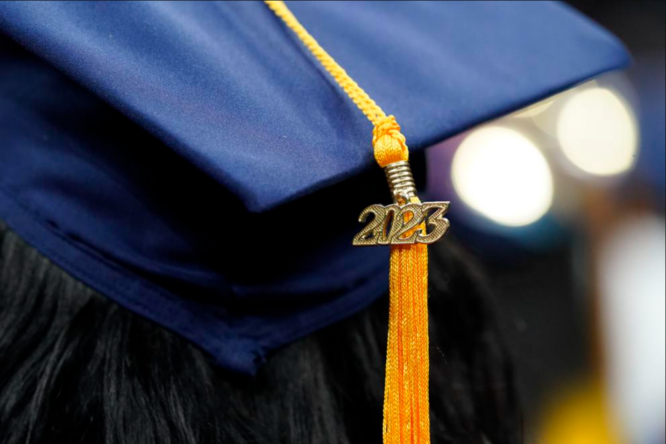Kimberly Palmer: Financial advice for recent graduates 2023

The first post-graduation paycheck may be almost as exhilarating as graduating. It also raises a question: How should a young person manage their budget given its various demands?
We asked five money gurus for their top personal finance tips to assist this year’s college graduates start their financial lives. They stated.
Find your budgeting style
Instead of following the newest TikTok budgeting craze, Erin Lowry, author of the “Broke Millennial Workbook,” recommends sitting down with a pen and paper to work out how to spend your money between needs, desires, and everything else. She advises listing major costs.
After rent, auto payments, and food, you can see what non-essentials fit. Lowry suggests eating out with friends, buying new work clothes, or getting a puppy. She says budgeting helps determine what you can afford.
“We think of budgets as restrictive things that keep us from having fun, but you should think of it as a way to control your money. “If you don’t know, you’ve lost control,” Lowry adds.

Tax factor
Financial educator Melissa Jean-Baptiste, author of “So… This Is Why I’m Broke,” says it’s easy to forget about taxes, which can lower your take-home income. Deductions like retirement contributions can decrease that amount.
Jean-Baptiste advises studying your first paycheck and deductions. “Take yourself on a money date to understand how much you’re bringing home and how much is left to save and invest,” she advises.
Save wisely
Alex Rezzo, a licensed financial advisor and CEO of Andante Financial in Los Angeles, advises recent grads to start saving for retirement even while paying off debt. “There will always be a more immediate excuse to delay saving for retirement,” he adds, but he advises saving at least 1% of each paycheck and increasing it over time.
He also recommends depositing your direct-deposited paycheck cash in a high-yield online bank guaranteed by the FDIC. Thus, the money may earn more than in a regular bank account.

Credit protection
Making minimal payments on student loans and credit cards might help you develop credit as you become financially independent. Lowry warns that late payments might hurt credit. To lower interest, she advises paying off high-interest debt first.
Freezing or locking your credit makes it difficult for identity thieves to get new credit in your name, Lowry advises. She adds, “you might want to wait until you’re through a period of time when you’re applying for new accounts” if you freeze your credit.
Mistakes teach.
Acorns’ chief education officer, Kennedy Reynolds, believes errors, like overspending or credit card debt, are part of the learning process. She recommends splitting your earnings to pay off debt.
“Try to picture yourself later and know that the choices you’re making now will have a long-term impact,” she says.
Beyond your paycheck
Outschool’s personal finance teacher, Linda Whiteman, encourages entrepreneurial thinking. Most millionaires are entrepreneurs, she says.
“You don’t have to work for someone,” she explains. She encourages her pupils to educate others, whether through online piano instruction or digital painting. She suggests diversifying income to build wealth.
Jean-Baptiste made a living selling lesson plans online using her teaching skills. She says she earned $10,000 a year to pay off debt. Her lesson ideas become her financial literacy business.
She thinks earning extra money outside of a wage “can be a game-changer”—financial advice for any age.
